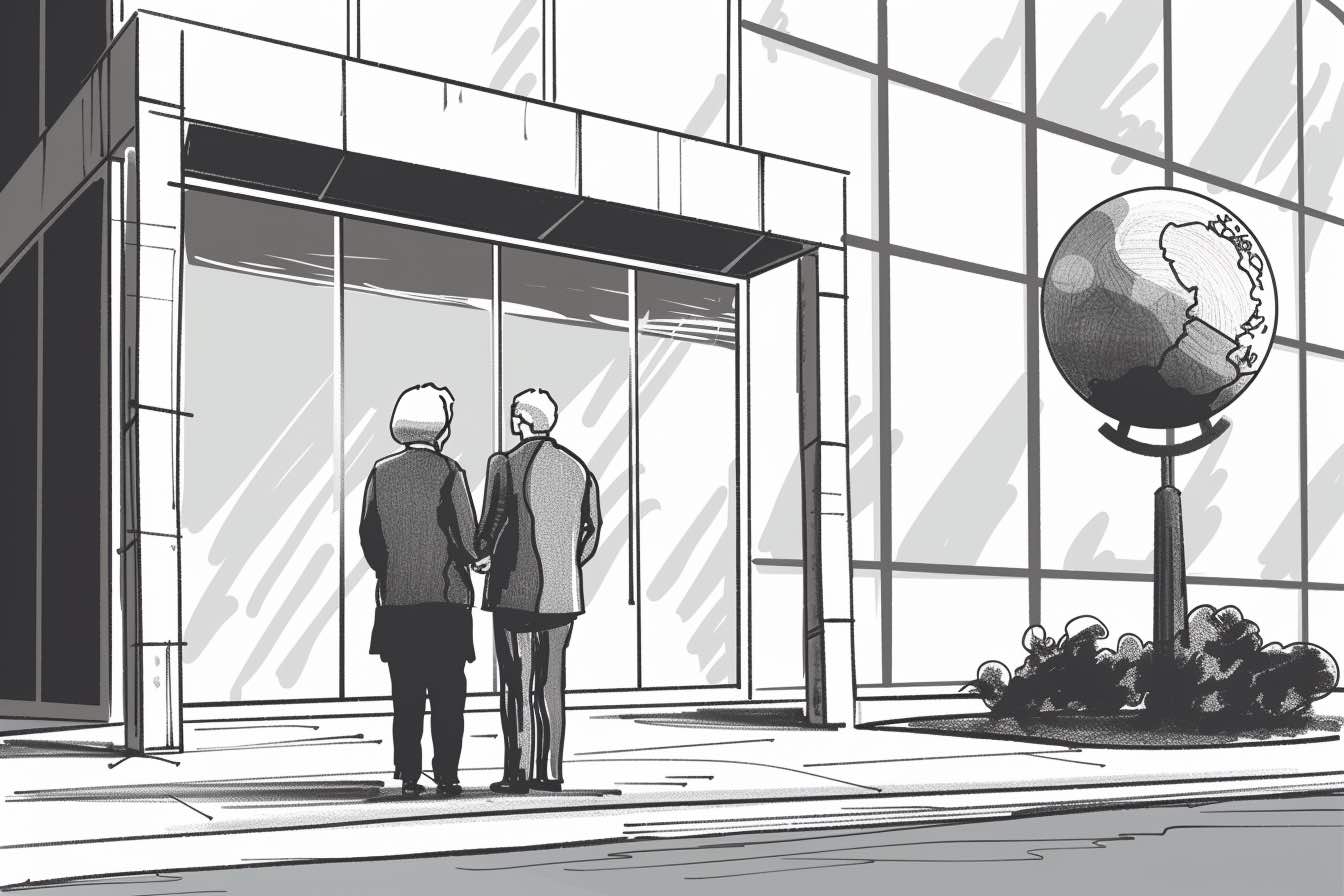Jimmy Lim thought he’d booked a suite for his family in Hong Kong through Booking.com. He ended up getting chased out of the hotel after complaining about the size of his rooms. Now he wants a refund — and, of course, he isn’t getting it.
It’s been a long time — a very long time — since we’d had an episode of Is This Enough Compensation? But today is that day, my friends. My advocacy team and I went to bat for Lim, but we need to know if Booking.com did enough to help him.
Along the way, we’ll answer a few question, including:
- What does a hotel owe you when it downgrades your room?
- What should you do if your hotel room isn’t what you expect?
- How do you appeal a problem with Booking.com?
But first, let’s find out how Lim got himself kicked out of his hotel.
A “suite” splits into two small rooms
Lim booked a “suite” at a hotel in Hong Kong called the Ashoka Hostel through Booking.com for a stay in mid-December.
You’ll see why I put “suite” in quotes in just a minute.
“It was for my family of two adults and four kids, and it included a common corridor,” he says.
The description of the room on Booking.com was: 2,700 square feet, two single beds, two double beds, “Bigger than most in Hong Kong.”
Here’s the description of the Ashoka’s deluxe suite, which matches Lim’s room description. (255 square meters is 2,744 square feet, which is quite spacious.)
But when Lim checked in, he found that the property had split his group into two separate rooms instead of a suite. Each of them was tiny — smaller than 255 square feet.
“The rooms were too small for us to squeeze into,” he says.
But by then it was too late. He’d already paid Booking.com $2,300 for a one-week stay.
“Either check in or go away!”
Lim immediately complained to the hostel’s managers. He said the accommodations had been advertised as a spacious suite when, in fact, he received two shoebox-size rooms.
“They got hostile,” he recalls. “They demanded that we check in or go away. They said, ‘Only Singaporeans and Malaysians would have problems with our hostel!'”
Newsflash: The Ashoka was, as its name implies, not a real hotel, but a hostel. And yes, you can go ahead and say it. I know you’re thinking it: That was a real hostel reception. (Related: Look out! This Booking.com scam is coming for you.)
Lim called Booking.com for help. A representative suggested that he book a different property using the Booking.com app.
But the owners were not happy with his complaining.
“We were literally chased out,” he adds.
Lim booked another room at a nearby hotel, but it cost him four times as much as the Ashoka Hostel.
But the real shocker came when he asked Booking.com for a refund. It deferred to the hostel, which had chased his family out of the building.
Thank you for sharing your experience with us. In this case, we’d like to encourage you to get in touch with the accommodation’s support service so they can look further into it for you.
We already coordinate [sic] to the property and the Ashoka Hostel said that they already upgrade your room to the 8 people and they already accommodate [sic] you.
Discussing this directly with the accommodation may also help you reach an agreement or compensation.
In other words, Booking.com would not be refunding him.
A futile appeal to Booking.com
Lim tried to appeal the denial.
In a polite rebuttal, he pointed out that he received a completely different room from the one displayed on the Booking.com site. Instead of giving him a suite, the hostel had provided him with two small rooms. (Related: Booking.com suspended my account. Can you help me get it back?)
“A suite is a room with or without separate rooms inside — not two separate rooms,” he wrote. “This is not an acceptable arrangement for a suite. I am traveling with my children, so we need to stay in the same room for safety.”
Lim’s objections made sense. But not to Booking.com.
Here’s the company’s follow-up response:
Hi Jimmy,
I strongly believe that apologizing will not make any difference to make you feel better, but please do accept one from me personally, as this has never been an intention to a valued customer like you.
We are sorry to hear about your recent experience at Ashoka Hostel. We’ve forwarded your feedback to the accommodation as well.
We want our customers to have the best travel experience, so we would like to offer you a Wallet credit of 25 EUR.
You can use it towards future travel plans or withdraw it to a credit card.
If you have any other questions, we are always here.
Lim was stunned by the tone-deaf response of Booking.com. He had spent thousands of extra dollars on a new hotel — and Booking.com was offering him a 25 euro voucher? (Also, since when do you address your customers by their first name?)
What does a hotel owe you when it downgrades your room?
Downgrades happen. Unfortunately, there’s no industry standard formula for compensating a customer when a hotel puts you in a smaller room. But there should be.
The hotel must inform you promptly
If a hotel needs to downgrade your room, it should notify you immediately — ideally, before you arrive. You deserve advance notice so you can make alternative arrangements.
The hotel must adjust your room rate
Depending on the severity of the downgrade, you should be eligible for a rate reduction. Hotels may offer a partial refund or a complimentary upgrade to a higher category room for a future stay. Always take the cash.
The hotel must compensate you for missing amenities
If the new room lacks amenities promised in your original reservation, such as a view, balcony, or bathtub, the property should adjust your rate to compensate for the value of the missing amenities.
The hotel should also apologize
Beyond the rate adjustment and the allowance of your missing amenities, the hotel should apologize and offer a meaningful gesture. It can be a voucher for a future stay or a credit at the restaurant.
By the way, a downgrade doesn’t waive additional charges for extras, such as Wi-Fi, parking, or breakfast. Even if you’re downgraded, these charges still apply unless explicitly stated otherwise in your reservation agreement. (Related: What’s the Booking.com refund process? The company took my money!)
Bottom line: Hotels shouldn’t just downgrade you into a small room and then tell you to accept it. That’s bad customer service.
What should you do if your hotel room isn’t what you expect?
My advocacy team and I receive frequent complaints from hotel guests whose rooms don’t match the online description. You would think online travel agencies like Expedia or Booking.com would do some quality control, but they don’t. As a result, room descriptions are often exaggerated — or downright false.
Read between the lines
Before booking, carefully review the hotel’s policies and descriptions. Look for warning signs like “renovations” or “temporarily out of service,” which may indicate that some amenities won’t be available during your stay. Also, pay attention to obvious exaggerations, such as 300 square meter hotel rooms (they probably mean square feet). And if a property calls itself a hostel don’t expect a hotel.
Document everything
Take pictures of the room when you check in, documenting any problems. Keep records of all correspondence with the hotel, including emails, receipts, and photographs. Believe me, they’ll come in handy if you need to dispute charges on your credit card.
Say something now
If your room doesn’t meet expectations, politely inform the front desk or manager immediately. Hotel employees are empowered to fix your problem then and there, by offering you a different room or upgrading your accommodations. You need to give the hotel an opportunity to fix the problem before moving on to the next step. Remember the method!
Complain to the hotel in writing
If that doesn’t work, try sending a brief, polite email to the hotel customer service manager outlining your problems and asking for a specific solution. If that doesn’t work, you can escalate it to the hotel’s owners or chain. I list the names, numbers and email addresses of all the major hotel chains on this site. (Here’s our guide to contacting the CEO directly.)
Contact the authorities
In the U.S., you can report issues with the property to the Federal Trade Commission (FTC) for false advertising violations. In the United States, hotels are also regulated at the state level, so you can contact state authorities to report suspected violations of lodging laws. And, of course, you can always get in touch with my helpful advocacy team.
Unfortunately, subpar lodging experiences are becoming more common as hotel rates rise. But these strategies can help you deal with a disappointing hotel room when you arrive at the property.
Booking.com reconsiders — to a point
I reached out to Booking.com to clarify a few things. In all the correspondence I had between Lim and Booking.com, there was no evidence that the site had asked for verification of the room size. It had simply taken the hotel’s word for it that Lim had received what he paid for.
Booking.com continued to reply to Lim with form apologies but denied him any kind of refund.
Here’s why I decided to take the case:
- Lim had booked a suite but received two small rooms, which were unsuitable for his family. In other words, he paid for a product but did not receive it.
- He also gave the hotel an opportunity to fix the problem — which was to put him in the suite he had booked. Instead, it chased him out.
- Lim also tried to resolve this through normal customer service channels but failed.
For future reference: Be wary of any property that refers to itself as a “hostel.” Hostels are usually budget accommodations for students and backpackers and although families can stay in them, they are not really considered family accommodations, if you know what I mean.
Booking.com’s response? Another form apology — and an offer to refund 50 percent of Lim’s $2,300.
Lim isn’t sure if he should accept the offer.
It looks like this money will come out of Booking.com’s pocket, and that the offer was made only after I got involved. I think it’s certainly better than a series of empty apologies and a 25 euro voucher.
Over to you. Do you think a refund of $1,150 is enough compensation for this hotel room mismatch in Hong Kong? Booking.com could do much better. It could cover his new hotel room, which cost four times as much as his original booking. But is that realistic?




